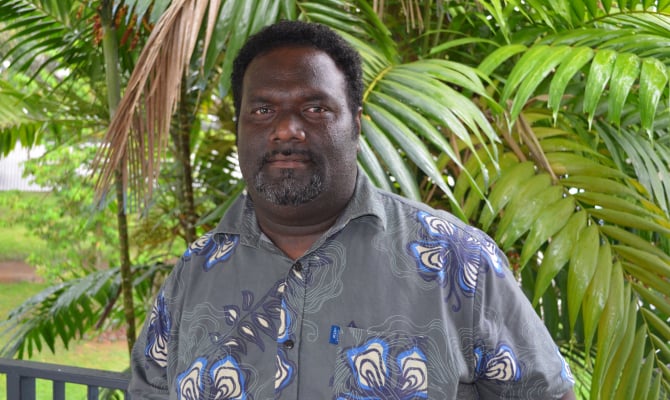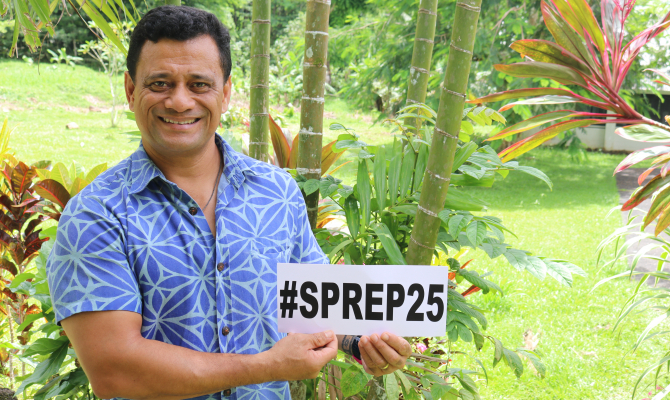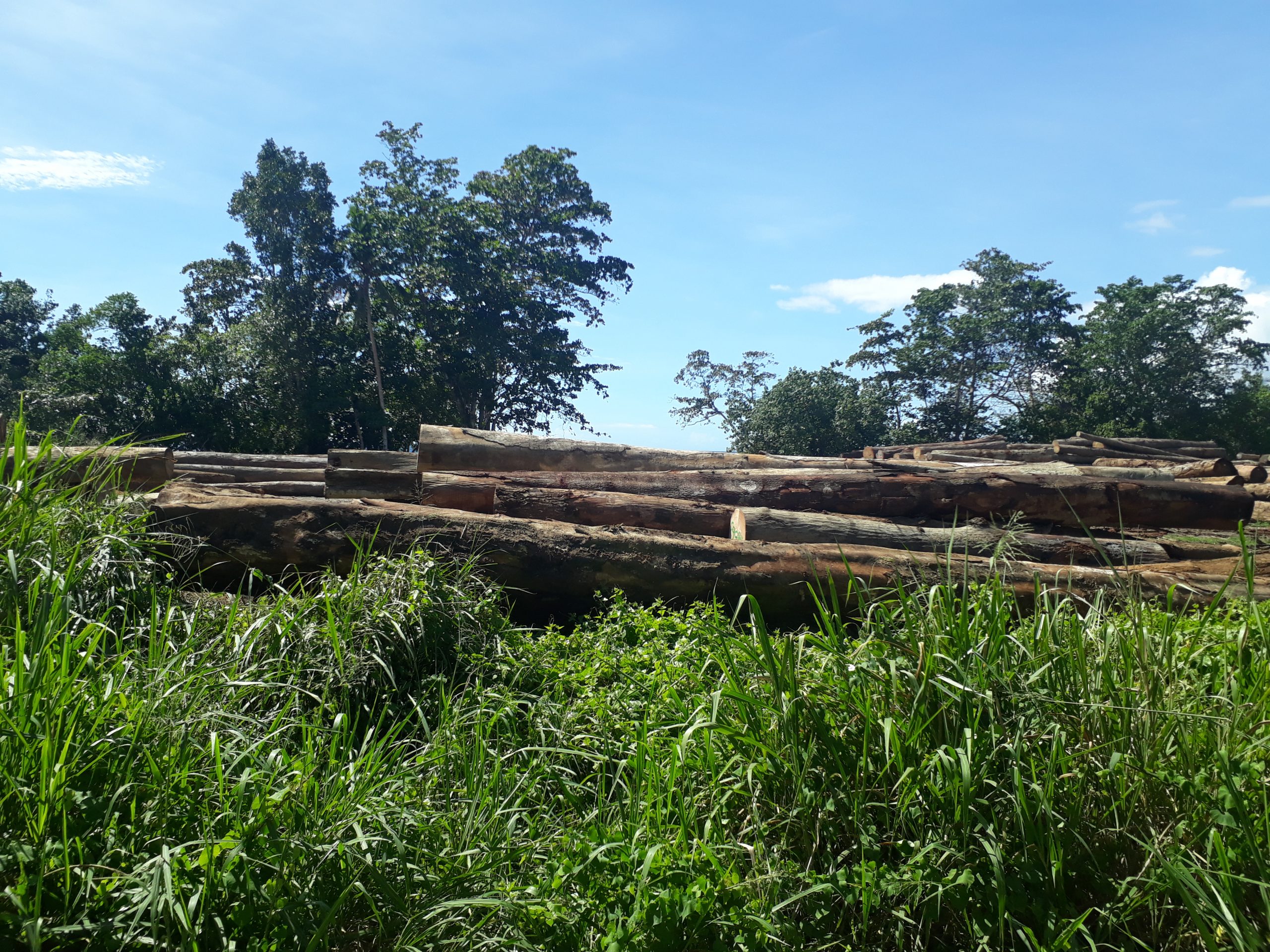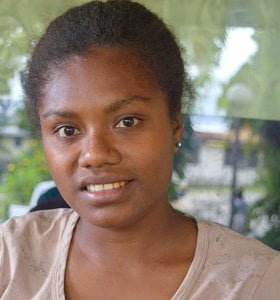Following is a Q & A series on Secretariat of the Pacific Regional Environment Programme (SPREP) Staff. In this series, we will be introducing you to members of our SPREP team, giving you the chance to learn more about what we do.
Mr Fred Siho Patison is the SPREP Pacific Ecosystem-based Adaptation to Climate Change (PEBACC) Country Manager for Solomon Islands, based in Honiara.
PEBACC is a five-year initiative implemented by SPREP in partnership with the governments of Fiji, Solomon Islands and Vanuatu. The project is funded by the International Climate Initiative (IKI) implemented by the German Federal Ministry for the Environment, Nature Conservation and Nuclear Safety (BMU) on the basis of a decision adopted by the German Bundestag. The project focuses on strengthening and protecting natural ecosystem services to enhance resilience to climate change.
Q: What is an environment challenge that you work to address?
A: I work on building ecosystems and community resilience to climate change, with a specific focus on watersheds and the urban environment. Ecosystem-based adaptation uses natural ecosystems and biodiversity as a basis for adapting more effectively to climate change. We do this by sustainably managing, rehabilitating and maintaining integrity of ecosystems to ensure that communities have access to the services and benefits that they provide. Examples of these ecosystem services include access to quality drinking water, fertile soil, food and products from the coastal environment, oceans and materials and food collected from forests and natural environment.
What I am working on is to help communities that we work with manage, protect and rehabilitate their respective ecosystems such as rivers and streams, watersheds, urban green spaces and forests. These ecosystems will in turn continue to provide ecosystem services such as fresh water, food, building materials, cooler urban environments, income, soil fertility and protection from extreme weather events in the face of climate change impacts.
Q: How do you work with our Members to address this?
A: The work I do focuses on enhancing the capacity and creating the enabling environment for the Government of Solomon Islands and the community to build resilience to the impacts of climate change through implementing ecosystem-based adaptation strategies and activities.
Q: What are your three biggest achievements with SPREP for our Members?
A: Assisting the Government of Solomon Islands and its stakeholders on policy change and helping them realise that ecosystem-based adaptation and solutions are a cost-effective and environmentally appropriate approach to building climate resilience. Through these projects we were able to make the case for including ecosystem-based approaches in sub-national and national policy. Examples of Solomon Island policies include:
- Solomon Islands National Ocean Policy 2019
- Solomon Islands National Waste Management and Pollution Control Strategy 2017
- Honiara Urban Resilience and Climate Adaptation Plan
- Choiseul Province Medium Term Development Plan 2017
- Revision of the National Biodiversity Strategic Action Plan 2016 (NBSAP)
Q: What are you working on at the moment?
A: The implementation of ecosystem-based adaptation activities at four demonstration sites in Solomon Islands. The sites I am working on are;
- Wagina Island – Increasing climate change impacts from unusual weather patterns in addition to population increase is putting are lot of pressure on water resources for the Wagina community. We are working with four communities focusing on freshwater ecosystems to help them effectively manage and sustain their water sources which include springs, rivers/streams, wells and watersheds. A water resources management guideline and an action plan are being developed.
- Barana Community Nature and Heritage Park – Climate change impacts such as changing weather patterns and forest degradation is a threat to water resources and livelihood of the community at Barana. Managing and protecting their watershed and forest ecosystems is therefore critical. The project focuses on managing community activities through forest ecosystem protection, land use management and livelihood activities. The project has also built an environment and resilience centre as a place for information sharing and discussing EbA interventions. A nursery was also built to support forest and watershed rehabilitation through enrichment planting and reforestation.
- Mataniko River – The Mataniko River flooding in 2014 was the most damaging in the history of Honiara city and is attributed to changes in weather patterns due to climate change. The focus is on rehabilitation of the riverbanks and management of waste to maintain ecosystem health and resilience of the river biodiversity.
- Botanical Garden – The Botanical garden is a major urban green space for Honiara city and plays an important role in regulating increasing temperatures from climate change in the city. It is also a major watershed and supplies water for Honiara city CBD. We are working with the relevant stakeholders to improve the governance arrangements for the garden, develop a management and business plan and invest in nursery and landscaping work.
Q: What are one or two of your highlights from working at SPREP?
A: Working with a very good team that supports the work I do despite the distance between Solomon Islands, Fiji and Samoa where our other PEBACC office and SPREP’s headquarters are located.
Another highlight is the establishment of the Barana Nature and Heritage Park and building the environment and resilience centre which is now recognised nationally as an example of a new approach to conservation and environment management in the country.
We have also been working on protection of the Pirini watershed in Choiseul Province and rehabilitation of their water source which is now serving the Sasamuga Hospital and wider community. The watershed has been fully rehabilitated and water capacity has increased to serve the community.
Q: Where have you seen your work make a positive difference?
A: At the government level and also with communities we work with as reflected in the media articles provided above.
Q: What words of advice do you have for people to make our environment a better one?
A: Focus on what you can do, and do it to your best of ability. Be patient and enjoy life.
Q: What words of advice do you have for people that would like to work at SPREP?
A: The focus of our work makes for a rewarding experience, and in addition you get to work with a team of diverse Pacific professionals – SPREP is the best




